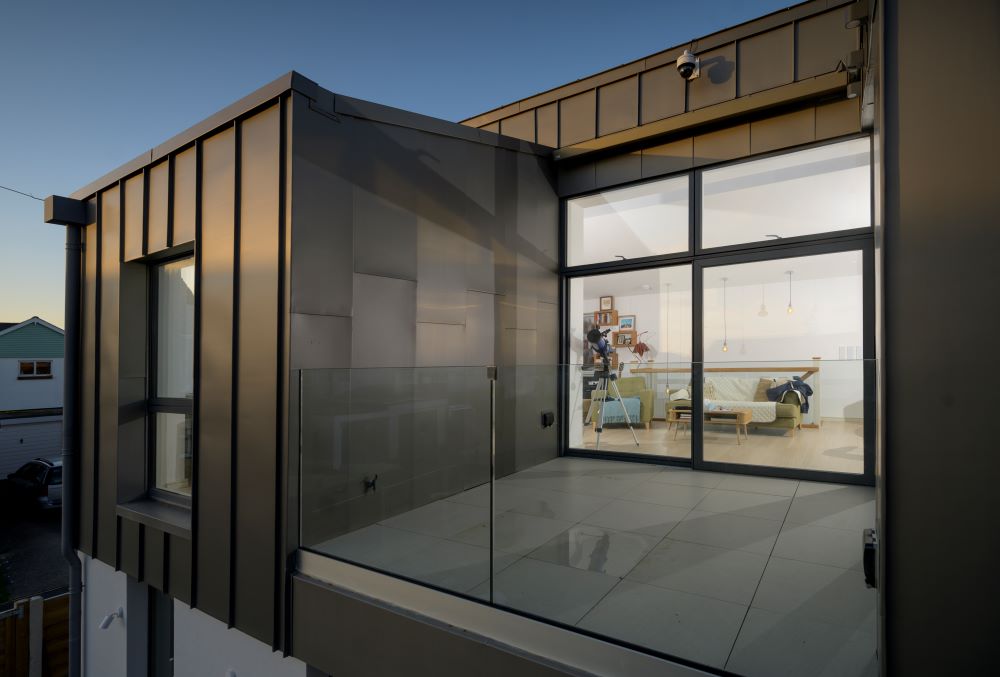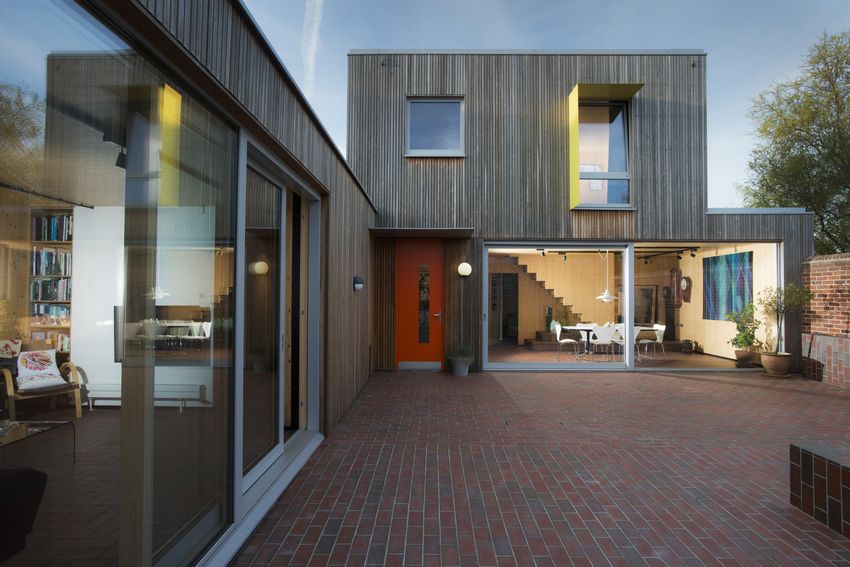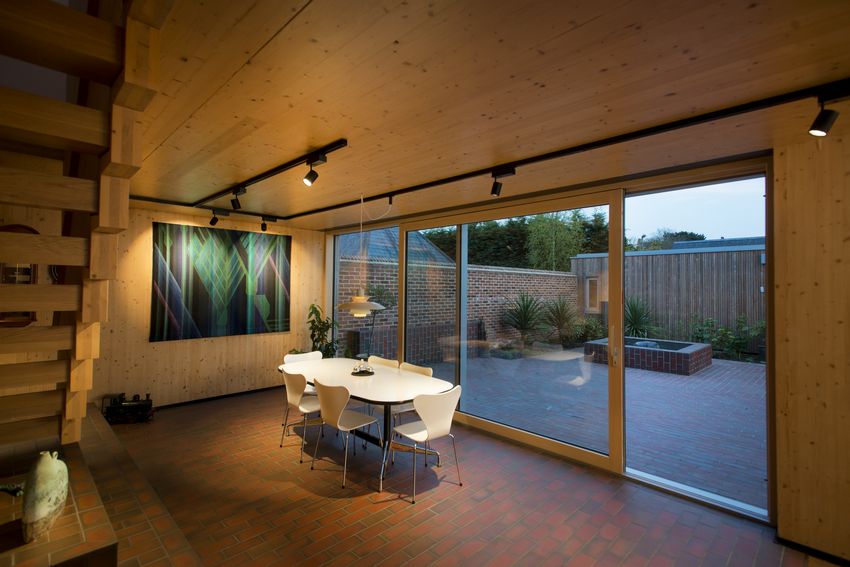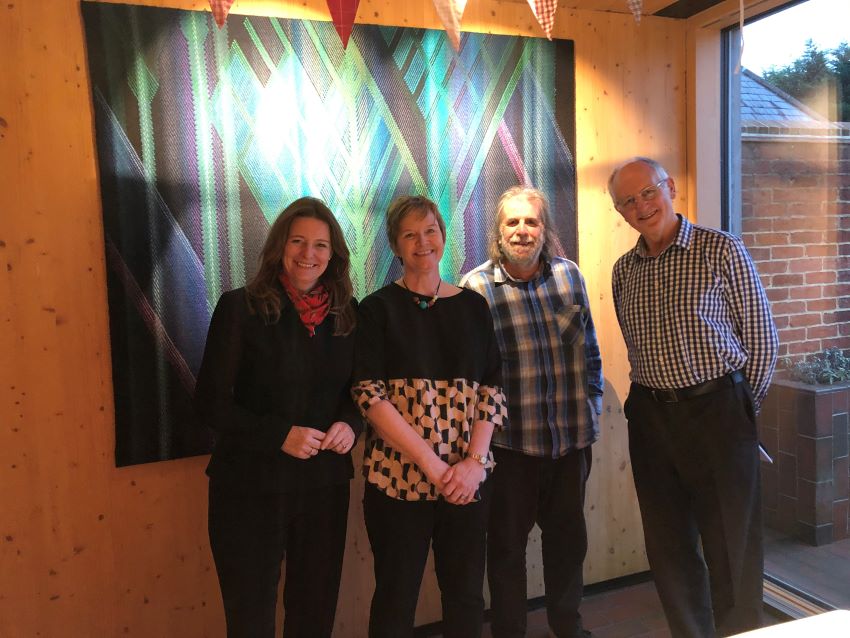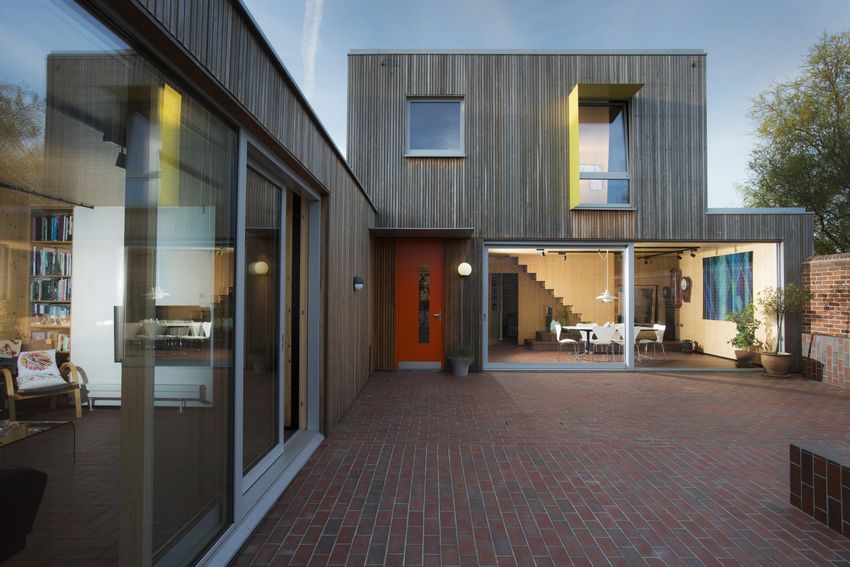Our climate is changing, we need to improve the energy efficiency of our buildings –…
Performance feedback from Hampshire Passivhaus
 If you are considering a carbon reduction programme as part of your new build or on an existing property, we thought it would be useful to share our energy payback calculations from Hampshire Passivhaus.
If you are considering a carbon reduction programme as part of your new build or on an existing property, we thought it would be useful to share our energy payback calculations from Hampshire Passivhaus.
We hope this will be of interest to anyone with a long-term view of their estates such as Universities, Private Schools, Housing Associations, Local Authorities or private house builders.
We have taken 2 years’ worth of energy data from Hampshire Passivhaus (read more about the project here) and performed some simple payback calculations.
Hampshire Passivhaus currently uses 4800kWh of electricity and 2764kWh of natural gas per annum. The cost for this energy at current best prices on a dual tariff is circa £700 per annum.
This compares to the UK averages for domestic dwellings from the Carbon Trust, suggesting annual consumption of 4800 kWh and 16000kWh respectively.
| Hampshire Passivhaus | Average UK Domestic Dwelling | |
| Electricity | 4,800 kWh | 4,800 kWh |
| Gas | 2,764 kWh | 16,000 kWh |
| TOTAL | 7,564 kWh | 20,800 kWh |
Interestingly the electricity figure for Passivhaus is the same as the UK average. This is a strange coincidence but reasonable because the biggest load for electricity is cooking and lighting which is similar in homes across the country.
The real difference comes in the gas used; Hampshire Passivhaus uses less than 20% of the gas of an average domestic dwelling. This reflects the huge difference in thermal performance of a passivhaus. Domestic hot water use in the passivhaus is reduced because of the solar thermal benefits and low flow fittings. Indeed Hampshire Passivhaus has had days where domestic hot water has been solely delivered by the solar thermal with no gas-fired top up.
Using the same energy rates the average U.K. home will cost approximately £2,000 per annum to run in comparison to the £700 for Hampshire Passivhaus.
Cost to upgrade to passivhaus
The additional costs to upgrade the project to passivhaus have been estimated at £47,000 and this gives a payback of just over 30 years. These costs relate to certification, modelling, insulation, window quality, airtightness and construction quality management.
Bearing in mind the design life for a modern building is 60 years and as energy prices continue to increase over that period the real lifetime payback is more like 20 years and seems like good value for a long term asset investor.
Is it worth investing in a passivhaus?
20 to 30 years does seem like a very long time and exceeds most developer’s acceptable payback periods of 5 to 10 years. That said there are many more financial and wellbeing benefits of a passivhaus. These include:
- Reduced maintenance costs for the much smaller and simpler heating system
- Internal air quality is very good with reduced pollutants
- Zero VoC materials can further enhance air quality.
- No internal condensation and mould growth on walls and reduced decorating costs
- Significant reduction in carbon emissions over traditional building, with savings on carbon taxes.
- Zero performance gap. Hampshire Passivhaus performs better than designed
As an aside, at Hampshire Passivhaus we pay for our utilities to come from Ecotricity who deliver zero carbon power and slightly reduced carbon natural gas. Taking this into account we currently generate only 2% of the carbon emissions of a conventionally supplied dwelling. This is only possible by the much-reduced gas consumption delivered by Passivhaus and zero carbon electricity. This delivers a massive benefit to the planet and to any carbon reduction programme.
The low energy demands mean increased value from the renewable installation, further supporting any carbon reduction programme. Even the modest renewable installation at Hampshire Passivhaus delivered 21% of the annual building energy.

Considering a Passivhaus build?
If you are considering a Passivhaus build for your next project we would be very happy to discuss how you could benefit from these performance enhancements.
We offer advice, design and project management in either our RIBA Client Adviser capacity or our Passivhaus Designer service.


